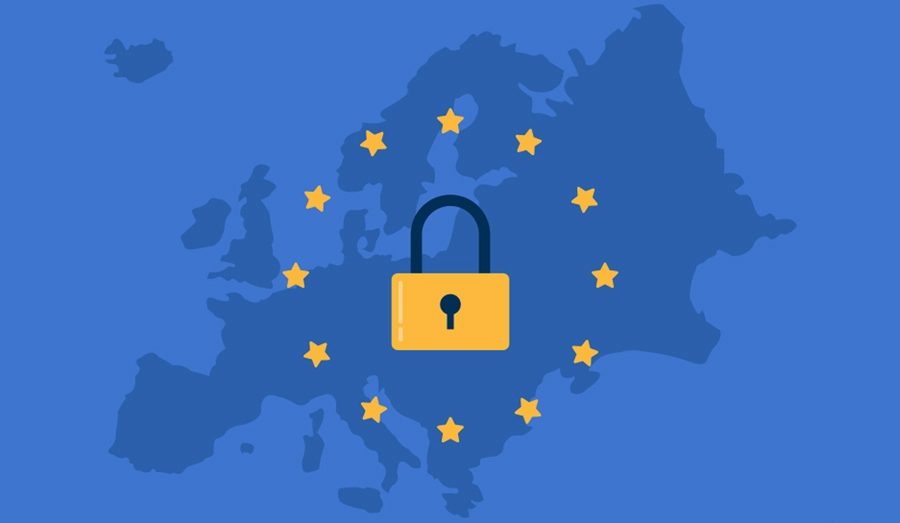It’s been three years since the European Union introduced the General Data Protection Regulation, otherwise known as GDPR. If you were an eCommerce professional during the transition, we bet you remember the stress of sorting data, acquiring consent, and scrambling towards compliance.
Thankfully, things have settled since the fateful day it came into effect. Now, consumers and businesses have a better understanding of what GDPR compliance means, and there’s enough data to assess its impact on eCommerce.
In this blog post, we’ll quickly recap the nuts and bolts of GDPR before exploring how it’s affected online companies, including:
- What is GDPR?
- Why is GDPR necessary?
- How has GDPR compliance affected eCommerce?
- Are there any benefits of GDPR for eCommerce businesses?
- How can I ensure my eCommerce site is GDPR compliant?
What is GDPR?
GDPR is a user-centric policy that addresses the following questions:
- Do I know what data businesses are collecting?
- Do I know how my data is being used and stored?
- Can I request my data to be revised or deleted?
- Are businesses informing me of my rights as a user?
To summarise, the policy protects the privacy of individuals across the EU and EEA (European Economic Area), giving them greater autonomy and assurance over how their personal information is used and kept safe.
It’s worth mentioning that GDPR doesn’t only impact EU businesses – it applies to any company that wants to sell to people within the region.
Why is GDPR necessary?
With more personal data being collected and stored than ever, GDPR stepped in to safeguard consumers. It honors the fundamental right to privacy of EU nationals, protecting them from insidious data breaches and sharing.
Chapter three of the GDPR policy states every person has the right to:
- Information
- Access to personal data
- Rectification of personal data
- Erasure of personal data
- Restriction of processing
- Data portability
- Object to usage
- Avoid automated decision making
For businesses, staying compliant is crucial to avoid hefty fines and penalties (after all, it’s the law).
Google received one of the most significant fines of €50m in 2019 after a regulator ruled that it had failed to make its data processing statements accessible. Additionally, it hadn’t asked for consent when using data for targeted advertising campaigns.
Read More: eCommerce Trends to Follow
How has GDPR compliance affected eCommerce?
GDPR has had an enormous bearing on how eCommerce businesses operate. Not only has it meant a wholly revolutionised approach to data management, but it’s trickled across to marketing, sales, and web design.
Keep reading as we run through some of the critical ways GDPR compliance has affected eCommerce, including:
- Enhanced Disclosure
- Data Control and Usage
- Third-party Compliance
1 – Enhanced Disclosure
Compliance means businesses must offer a comprehensive and precise privacy policy that explains what data they’re collecting, why, and how it’s stored, shared, and processed.
Let’s take ASOS as an example – they’ve created a dedicated web page that answers consumer questions concerning marketing messages, targeted advertisements, and cookies. They also tell people how to contact them if they want their information removed from the database.
Another method of providing enhanced disclosure is through cookie pop-ups. They let users accept or decline whether companies can use their personal information for personalised ads.
2 – Data Control and Usage
The introduction of GDPR demanded eCommerce businesses change the way they controlled and used data. Marketing and sales departments had to adjust quickly, trimming the fat and guaranteeing consent every step of the way.
Nowadays, eCommerce websites can only collect necessary data depending on user actions and business purposes. For instance, you can’t request personal details irrelevant to the service or products you provide.
Then, people must expressly agree to market and sales communications, making it much more difficult for cold callers (leads have to be qualified or ‘warmed-up’ before sales teams pounce).
Email marketers can’t assume permission. Instead, people have to agree to newsletters and reinforce their interest by affirmative action. GDPR signaled the end of automatic opt-ins and pre-ticked boxes.
3 – Third-party and Plug-in Compliance
Many eCommerce websites use plug-ins and third-party service providers like PayPal or Amazon. However, GDPR has seen businesses reassess their partnerships because everyone involved must assure compliance. Even if you’re following all the rules, working with non-compliant companies may incur fines.
Are There Any Benefits of GDPR for eCommerce Businesses?
Despite GDPR revolving around consumer rights, there are plenty of benefits to eCommerce businesses. While it can be stressful to implement initially, it ultimately improves data management, security, and brand confidence.
A GDPR compliant framework strengthens cybersecurity and prevents data breaches, leaks, and misuse. Most importantly, it promises payment details are protected at all times and deleted when necessary.
As businesses can only collect relevant data, marketing and sales communications become more meaningful and relevant, increasing revenue in the long run. Losing uninterested email subscribers and leads isn’t a bad thing – you can invest your effort in a smaller yet more engaged community.
Lastly, full compliance demonstrates your brand is trustworthy (it’s worth showing off your GDPR prowess). People want assurance that you’re an excellent custodian of their personal information.
How Can I Ensure my eCommerce Site is GDPR Compliant?
GDPR is a must for any business inside the EU and those trading with EU consumers. From on-site cookies to subscription forms, various slip-ups could see you breaching GDPR and landing a substantial penalty.
However, there’s no need to stress. At Bing Digital, we provide GDPR compliance services that ensure your website is up to scratch. First, our expert team assesses every page, plug-in, and process, compiling a detailed report on potential pitfalls. Then, we give you a clear compliance score and advice on how to improve.
If GDPR has been breached, we’ll run a full audit, recording the location of all personal data stored by your business. Crucially, this will highlight any gaps or weak spots in your data collection, storage, or deletion process.
If you’d like to know more, please contact us today. Alternatively, expert support is just a phone call away on 020 8242 1954.

